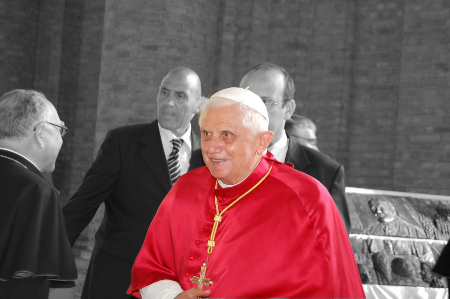 Hi readers, it seems you use Catholic Online a lot; that's great! It's a little awkward to ask, but we need your help. If you have already donated, we sincerely thank you. We're not salespeople, but we depend on donations averaging $14.76 and fewer than 1% of readers give. If you donate just $5.00, the price of your coffee, Catholic Online School could keep thriving. Thank you. Help Now >
Hi readers, it seems you use Catholic Online a lot; that's great! It's a little awkward to ask, but we need your help. If you have already donated, we sincerely thank you. We're not salespeople, but we depend on donations averaging $14.76 and fewer than 1% of readers give. If you donate just $5.00, the price of your coffee, Catholic Online School could keep thriving. Thank you. Help Now >
Supreme Court: Hey cops, next time GET A WARRANT!
FREE Catholic Classes
The Supreme Court has told police they need to get a warrant before they start snooping in cellphones. The decision was unanimous and should curtail police invasions of privacy that have become all too frequent.
Highlights
Catholic Online (https://www.catholic.org)
6/25/2014 (9 years ago)
Published in Politics & Policy
Keywords: Supreme Court, warrent, cell phones, searches, warrant
WASHINGTON, DC (Catholic Online) - Police across the United States have faced growing criticism and public backlash over their tactics which are seen as increasingly militant and excessive. Among those tactics is the routine search of a person's cell phone records during a detention. Critics have accused the police of fishing for clues in situations where they have no business.
Today, the Supreme Court unanimously agreed, ruling that police will need a warrant, at least in most cases, before searching a cellphone or smartphone.
The justices ruled on two cases, one from California and one from Massachusetts.
Police claim they need to be able to quickly search cellphones for evidence that could provide clues in cases where time could be of the essence. However, the justices acknowledged this fact and still ruled in favor of privacy. "We cannot deny that our decision today will have an impact on the ability of law enforcement to combat crime," Chief Justice John Roberts explained. "Privacy comes at a cost."
The two cases involved searches of cellphones in California and Massachusetts which had already been tossed out by lower courts, but were brought before the Supreme Court on appeal. The judges explained that because smartphones contain so much personal information, a warrantless search could breach privacy rights guaranteed by the Fifth Amendment.
The court did say that police could still search phones in "exigent circumstances." However, broad sweeps of data and warrantless searches of cell phones cannot take place without a warrant.
The Constitution has long been interpreted to say that police can search an individual and their property, but only for those things specified in a warrant. For example, if a person is thought to be hiding a physical object and the warrant authorizes a search or it, then police can search anyplace that object may be. However, they cannot search in places where it cannot be, because that amounts to fishing for evidence.
Police can still make an arrest and charge defendants with other crimes when evidence of additional crimes is obvious, but they cannot go searching without a warrant or probable cause.
Today's ruling comes amid previous rulings that permit authorities to take DNA swabs from arrested individuals and add their DNA to a database for unsolved crimes. It also contrasts with a ruling that police can conduct strip searches of prisoners without probable cause.
However, police need a warrant to attach a GPS device to a person's car or to bring a drug sniffing dog to a house.
Americans are becoming increasingly sensitive about their privacy, as many realize that their most intimate personal information is being aggregated, monitored and monetized by third parties. Normally it is private industry engaged in this behavior, looking for ways to market to people. Recently, federal and local law enforcement have been revealed to be doing it too, in an effort to hoover up vast quantities of data and reveal potential suspects.
In a free society, a balance must be struck between personal liberty and personal safety. Safety is often cited as a reason to diminish personal privacy. However, Americans have made clear that privacy is of value to them, just as it was to the framers of the Constitution. Nor does the government have an absolute, overriding mandate to guarantee perfect safety either.
To a great degree, personal privacy and safety are individual responsibilities. In a free society a government and its police cannot have permission to take these without good, specific reasons. This is why we have warrants and permit judicial review before police start searching and arresting people.
Justice Roberts is right. Freedom, privacy and liberty have a cost. So too does safety. Today the court has told police how far they can go to protect safety. Given the increasingly aggressive nature of law enforcement tactics, it's time someone reigned them in.
---
'Help Give every Student and Teacher FREE resources for a world-class Moral Catholic Education'
Copyright 2021 - Distributed by Catholic Online
We ask you, humbly: don't scroll away.
Hi readers, it seems you use Catholic Online a lot; that's great! It's a little awkward to ask, but we need your help. If you have already donated, we sincerely thank you. We're not salespeople, but we depend on donations averaging $14.76 and fewer than 1% of readers give. If you donate just $5.00, the price of your coffee, Catholic Online School could keep thriving. Thank you.Help Now >








 Daily Readings for Friday, April 19, 2024
Daily Readings for Friday, April 19, 2024 St. Alphege: Saint of the Day for Friday, April 19, 2024
St. Alphege: Saint of the Day for Friday, April 19, 2024 Stewardship Prayer: Prayer of the Day for Friday, April 19, 2024
Stewardship Prayer: Prayer of the Day for Friday, April 19, 2024

